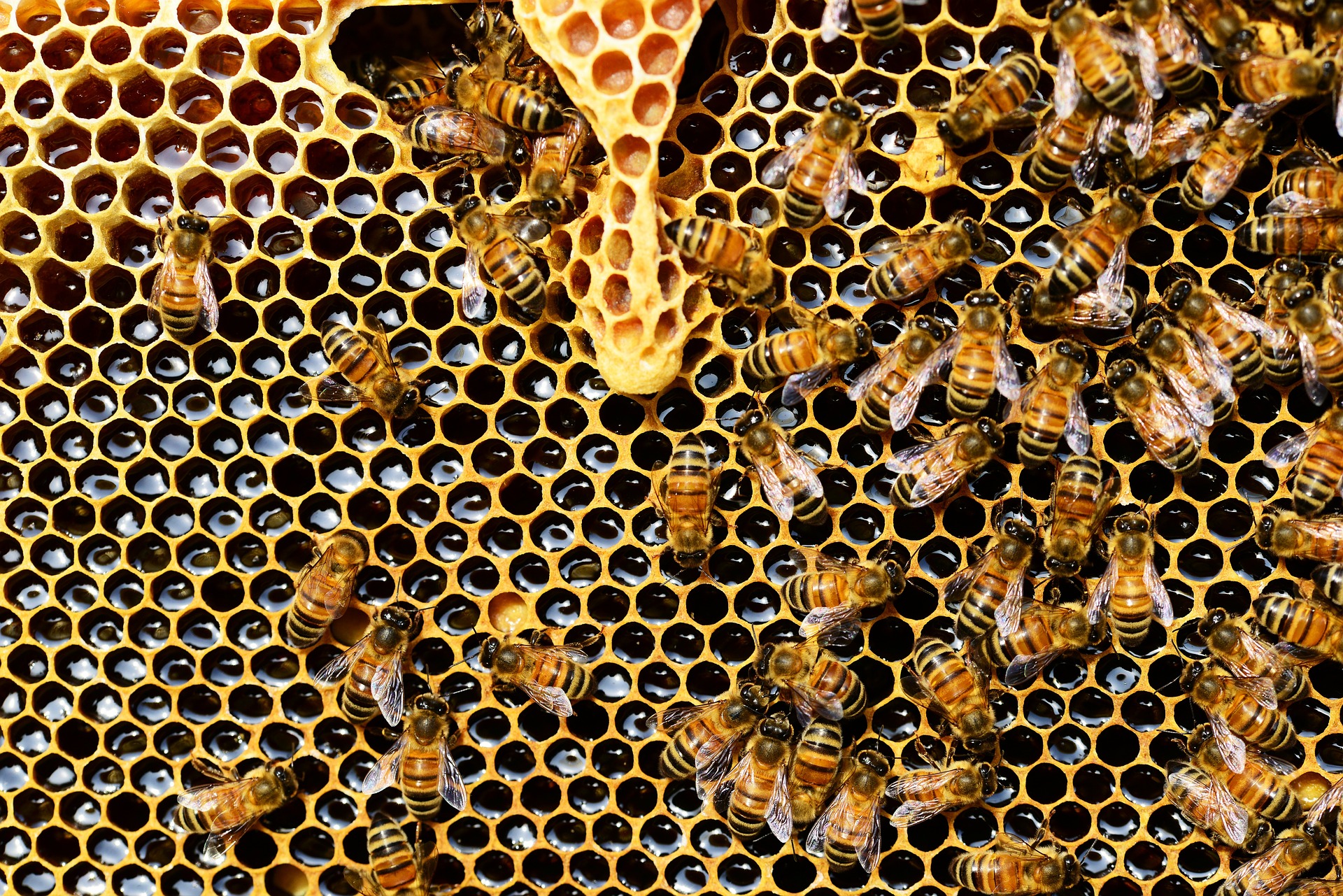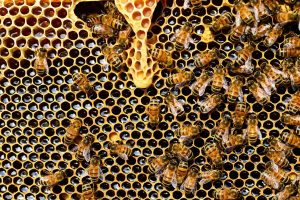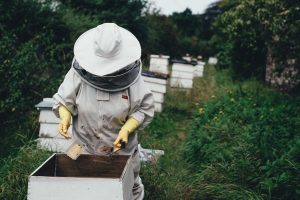Why We Love Honey Bees!

 A honeybee is…
A honeybee is…
… a social insect that lives in a perpetual colony. They do not ‘hibernate’ in winter, but reduce their activity and overwinter as a cluster within their nest. They expand the colony size very rapidly each spring and summer, meaning they can go out foraging for pollen and nectar in force, earlier than other pollinators. They don’t think of themselves as individuals but live their lives with the sole aim of supporting their colony.
So how do they work together?
They are very complex creatures. They communicate with each other:
- through pheromones (scents that prompt responses from other honeybees)
- ‘dances’ (to pass information to other members of the colony about nectar sources, the time to swarm, the location of a new nest site, etc.) and
- trophallaxis (food sharing to convey information about nectar and to distribute various control pheromones throughout the colony).
They are first class navigators and use landmarks and the position of the sun to find their way from their home to a source of forage and back again. They seem to have some sense of time as they will adjust the angle of the waggle dance to take account of changes in the sun’s position since their return to the hive.
 Why are honeybees so important?
Why are honeybees so important?
- The honeybee is very efficient at pollinating crops that are valuable to us humans – fruit, some field crops, vegetables and some herbs. The annual pollination value of honeybees to the UK economy is in the hundreds of millions of pounds.
- The honeybee collects nectar from flowers, which it converts into honey as its source of carbohydrates. But a large colony makes much more honey than it needs which enables the beekeeper to remove the surplus for his/her own use. Honey has also been shown to have good healing properties, particularly on open wounds – it contains a natural antibiotic. About 4,000 tonnes of honey is produced annually in the UK and 5 or 6 times that amount is imported.
- It produces beeswax which is extremely useful for a wide range of applications, especially candles (as it burns very cleanly without smoke), preservatives, cosmetics and pharmaceutical uses. For centuries bees were kept by monks because of the value of wax for church candles, as well as its use in making ointments and salves. Today it is still more valuable than honey.
- It collects propolis, a resin produced by some trees and shrubs. This is a sticky, shellac-like substance which has medicinal and some cosmetic applications, sometimes used in alternative medicine. Bees use it as an antiseptic ‘varnish’ to keep the cells of their brood nest clean and healthy.
- It collects pollen from flowers as its source of protein and minerals, pollinating in the process. This too is sometimes used in alternative medicine.
Since the arrival of Varroa (a parasitic mite of bees) in Europe and North America there has been a significant reduction in feral honeybee colonies. Competent beekeepers are therefore essential to manage and maintain healthy stocks of bees to provide pollination services to the agricultural and horticultural industries, as well as supporting the natural environment.
In short, bees need us but we need them far more!
